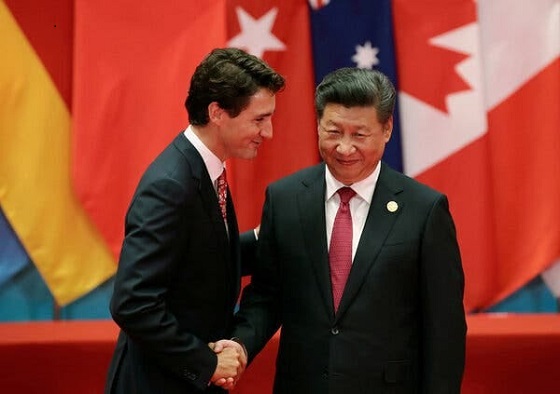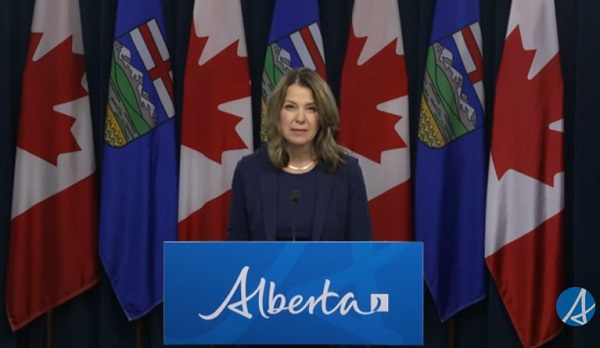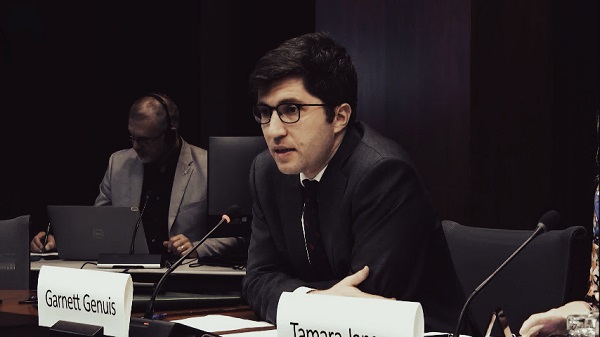espionage
Democracy Betrayed, The Scathing Truth Behind Canada’s Foreign Interference Report

A damning report reveals years of inaction, secrecy, and complicity as foreign actors targeted elections and silenced communities under Trudeau’s watch
If you want to understand the slow, deliberate erosion of Western democracy, look no further than Canada. A newly released report on foreign interference in Canadian elections is a damning indictment of how a nation’s leadership can be so corrupt, incompetent, and cowardly that it allows foreign powers—most notably China—to undermine its democratic institutions while pretending to govern in the public’s interest. The so-called leader of this disgrace? Prime Minister Justin Trudeau, who, despite recently announcing his resignation, continues to embody everything wrong with modern governance: self-interest, spinelessness, and contempt for the very people he was elected to serve.
The report, spanning over a hundred pages, exposes the extent of foreign interference in Canada’s 2019 and 2021 federal elections. But don’t let the dry language and bureaucratic jargon fool you—this isn’t just an academic exercise. This is the story of how a sitting prime minister and his enablers knowingly allowed foreign actors to meddle in the political process, smear opposition candidates, intimidate diaspora communities, and effectively shape the narrative to their benefit.
So let’s get into the details, because, unlike Trudeau and his lackeys, I actually believe in transparency.
China’s Election Meddling: A Case Study in Cowardice
First, let’s talk about the obvious elephant in the room: China. The report doesn’t shy away from stating what we’ve all known for years—China is actively working to undermine Canada’s democracy. The Communist Party of China (CCP) has its hands deep in Canadian politics, and the interference isn’t limited to election periods. According to the report, Beijing’s strategies include manipulating diaspora communities, intimidating critics, spreading disinformation, and even using proxies to influence nomination contests within Canadian political parties.
Take the case of Han Dong, a Liberal candidate in the 2019 election for Don Valley North. Intelligence suggests that PRC officials were involved in irregularities during his nomination process. Buses of international students were allegedly brought in to vote for Dong using falsified documents, all under the direction of CCP-linked operatives. This wasn’t just a small-town scandal; this was a coordinated effort to place Beijing’s preferred candidate into Canada’s Parliament.
The same tactics played out in 2021. Conservative leader Erin O’Toole and MP Kenny Chiu were directly targeted by Chinese-language disinformation campaigns. O’Toole was smeared as a “Canadian Trump,” and Chiu, who dared to propose a foreign influence registry, became the target of coordinated attacks from CCP-linked media. The aim was clear: scare Chinese-Canadian voters away from the Conservatives. The Liberals, conveniently, benefitted from this interference.
Trudeau’s Response: Silence, Secrecy, and Self-Preservation
The government’s handling—or rather, its non-handling—of foreign interference is a case study in cowardice and self-interest. According to the report, intelligence agencies like CSIS raised the alarm about foreign actors meddling in Canada’s elections. They gathered detailed evidence, flagged specific instances of disinformation, and even briefed Trudeau himself. But what did Trudeau do with this critical information? Nothing. Not a statement, not a warning, not even a hint to the Canadian public that their democracy was under attack.
This wasn’t a failure of intelligence; it was a failure of leadership. CSIS fulfilled its duty, providing the necessary information to those in power. Yet Trudeau and his government chose to suppress the truth. Why? Because confronting the issue head-on would have exposed just how much his Liberals benefited from this interference.
And here’s the kicker: the mechanisms designed to protect democracy didn’t just fail—they were rigged to fail. Take the so-called Panel of Five, the bureaucratic body tasked with determining whether threats to elections warrant public disclosure. This group of unelected senior officials, operating under vague thresholds and unclear criteria, decided that Beijing’s activities during both the 2019 and 2021 elections didn’t meet the standard for public disclosure.
Think about that for a second. Intelligence agencies reported that Chinese Communist Party (CCP)-linked operatives were actively meddling in Canada’s elections—spreading lies about opposition candidates, manipulating diaspora communities, and amplifying CCP propaganda. Yet the Trudeau government deemed this not worth telling the Canadian people. The Panel of Five essentially became a firewall, shielding the Liberals from accountability under the guise of maintaining public confidence.
The absurdity doesn’t stop there. After the 2021 election, the Conservative Party compiled evidence of a targeted disinformation campaign against its candidates and sent it to government officials. This wasn’t hearsay—it was a detailed dossier, backed by intelligence and media analysis. What did the Trudeau government do with it? They shrugged. They didn’t investigate further. They didn’t acknowledge the findings. They didn’t even bother to respond substantively. Why? Because that disinformation campaign served their interests.
Let’s be clear about what this means. The Trudeau government, knowing full well that foreign actors were undermining Canada’s democracy, chose to stay silent because the interference helped them win. This isn’t just negligence—it’s complicity. Trudeau and his Liberals actively benefited from the chaos sown by Beijing, and they were perfectly content to let it continue as long as it worked in their favor.
It’s no wonder Trudeau has been so cagey about foreign interference. His government has gone out of its way to bury the issue, hiding behind classified documents and vague statements about “national security.” The report exposes this strategy for what it is: a deliberate effort to suppress the truth and avoid accountability. The Liberals’ refusal to act wasn’t about protecting Canadians—it was about protecting themselves.
Now, let’s talk about the broader implications of this. By choosing secrecy and inaction, Trudeau didn’t just fail to defend Canadian democracy—he actively undermined it. Every time his government ignored intelligence or dismissed concerns, they sent a clear message to foreign actors: Canada is an easy target. Want to manipulate elections? Go right ahead. Want to intimidate Canadian citizens? Be our guest. The government won’t stop you, and they certainly won’t tell anyone about it.
This isn’t leadership. This is betrayal. Trudeau’s decision to prioritize political expediency over national security is a stain on his legacy and a threat to Canada’s future. His silence, his secrecy, and his self-preservation have left the country vulnerable, its democratic institutions weakened, and its people in the dark.
The Trudeau government’s inaction on foreign interference is one of the most shameful episodes in modern Canadian history. It’s a stark reminder that when leaders prioritize their own interests over those of their country, the consequences are catastrophic. The question now is whether Canadians will demand accountability—or whether they’ll let this betrayal go unanswered.
A Government That Betrays Its People
Let’s not mince words here: Justin Trudeau’s government didn’t just fail Canadians—it betrayed them. The foreign interference report exposes this betrayal in excruciating detail. It’s not just about what Trudeau did, like turning a blind eye to Beijing’s meddling in Canadian elections. It’s about what he refused to do. He refused to defend Canada’s democracy when it needed defending most. He refused to stand up to the Chinese Communist Party (CCP) when they targeted and intimidated Canadian citizens. And he refused to lead when diaspora communities were crying out for protection against foreign repression on Canadian soil.
Let’s start with the facts laid bare by the report. Chinese-Canadian communities weren’t just affected by foreign interference—they were targeted. Beijing’s agents used fear, manipulation, and outright threats to control the narrative in these communities. Families were warned that voting for candidates critical of the CCP could bring repercussions for their relatives back in China. Activists who dared to speak out against Beijing were silenced, their voices drowned out by a well-organized campaign of intimidation. This wasn’t subtle. This wasn’t covert. This was blatant repression, happening right under Trudeau’s nose.
What’s worse, the report makes clear that this wasn’t just a side effect of interference; it was a strategy. The CCP didn’t just want to influence elections—they wanted to control entire communities. By sowing fear, they discouraged Chinese-Canadians from participating in the democratic process. They wanted to isolate critics, marginalize dissenters, and send a message: if you speak against us, we will come for you and your family. And what did the Trudeau government do in response? Nothing. Not a word. Not a single meaningful action.
This is more than a failure. It’s a dereliction of duty. Trudeau loves to preach about human rights on the world stage, posing for photo ops and lecturing other leaders about the moral high ground. Yet when Beijing came into his own backyard and trampled the rights of Canadian citizens, he stayed silent. Where was his outrage? Where was his condemnation? Nowhere to be found. Trudeau’s inaction sends a clear message to every foreign power looking to exploit Canada: our government will not stand up for its people.
And then there’s the secrecy. Oh, the secrecy. The report claims to promote “transparency,” but most of the critical information remains classified. What Canadians are left with is a series of vague summaries and sanitized conclusions. The government doesn’t trust you to handle the truth. They think you’re too fragile, too uninformed, or maybe just too unimportant to be told what’s really going on.
This isn’t just insulting—it’s dangerous. Secrecy creates a vacuum where misinformation and distrust thrive. It leaves Canadians in the dark about the threats to their democracy, while allowing foreign powers to operate unchecked. And let’s be clear: the Trudeau government’s obsession with secrecy isn’t about protecting national security. It’s about protecting themselves. They don’t want you to see how badly they’ve handled this, how deeply they’ve failed.
What Canadians deserve—and what they’re not getting—is leadership. Real leadership. The kind of leadership that prioritizes the safety, dignity, and rights of its citizens over political expediency. The kind of leadership that takes a stand against foreign bullies instead of kowtowing to them. Trudeau has proven, time and time again, that he is incapable of this. And now, as he prepares to exit stage left, he’s leaving behind a broken system and a government more concerned with maintaining power than defending democracy.
Let’s not fool ourselves into thinking this problem will disappear when Trudeau does. His enablers are still in power. The Liberal Party isn’t just complicit in this failure—it’s the architect of it. Trudeau’s culture of weakness, secrecy, and corruption has infected the entire party. And if you think the new leader will be any different, you’re deluding yourself. This isn’t about one man. It’s about an entire system that has failed Canadians at every level.
The report calls for a “whole-of-society” response to foreign interference. That sounds nice, doesn’t it? Very bureaucratic. Very official. But let’s be honest about what that really means. It’s a way of passing the buck. It’s the government’s way of saying, “This isn’t just our problem—it’s everyone’s problem.” But it’s not everyone’s problem. It’s the government’s job to defend democracy. It’s their responsibility to protect citizens from foreign threats. And if they can’t—or won’t—do the job, then they need to be replaced with people who will.
This is a wake-up call for Canadians. It’s time to demand accountability. Trudeau may be on his way out, but his resignation doesn’t absolve him of responsibility for this mess. Nor does it excuse the failures of his party. The Liberals need to answer for their inaction, their secrecy, and their complicity in allowing foreign interference to thrive.
If you care about Canada’s future—if you care about democracy—then the time to act is now. This isn’t just about protecting elections. It’s about protecting the very foundation of what it means to be Canadian. It’s about standing up for your rights, your voice, and your country. And it starts with holding this government accountable for its betrayal.
Subscribe to The Opposition with Dan Knight .
For the full experience, upgrade your subscription.
espionage
“Suitcase of Cash” and Secret Meeting Deepen Britain’s Beijing Espionage Crisis

Britain’s most consequential espionage scandal in a generation has narrowed on Keir Starmer’s inner cabinet after The Sunday Times revealed that alleged Chinese agent Christopher Berry was intercepted at Heathrow Airport with a “suitcase full of cash” — and that senior officials, including National Security Adviser Jonathan Powell and Cabinet Secretary Christopher Wormald, held a closed-door meeting, allegedly discussing that advancing the case would harm relations with Beijing, weeks before prosecutors abandoned the insider-threat file.
The revelations, combined with an explosive Opposition letter from Kemi Badenoch and a rare diplomatic intervention from Washington, have plunged Prime Minister Keir Starmer’s government into the most serious national-security controversy of its tenure — one now shaking both Westminster and the Five Eyes intelligence alliance. Not since the Kim Philby affair and the exposure of the Cambridge Spy Ring has a British government been so roiled by allegations of insider compromise and appeasement toward a hostile foreign state.
As The Sunday Times reported, Christopher Berry — a 33-year-old academic from Oxfordshire — was stopped under the Terrorism and Border Security Act after a February 2023 flight from China. Police seized £4,000 in cash, believed to have been supplied by his Chinese handler, codenamed “Alex,” linked to the Ministry of State Security.
A witness statement tabled in Parliament last week indicated that Berry funnelled real-time political intelligence through his MSS handler to one of Beijing’s senior leaders, all collected from a former Chinese teaching colleague — a Parliamentary researcher with deep access to senior Conservative MPs. Beijing reportedly viewed those MPs as a strategic threat, fearing that if they rose to higher office they would adopt a far stricter stance toward China’s geopolitical ambitions.
Though Berry was not detained at the time, the incident became central to the espionage case later dropped by the Crown Prosecution Service when the Starmer government declined to certify that China posed an “ongoing threat to national security” — a legal requirement under the Official Secrets Act.
The Sunday Times also revealed that Deputy National Security Adviser Matthew Collins, the government’s sole witness, privately acknowledged that the decision not to describe China as an “ongoing threat” was “political.” The paper further disclosed that Jonathan Powell — a former banking executive who rose to become Starmer’s National Security Adviser — chaired a meeting on September 1 attended by Cabinet Secretary Christopher Wormald and MI5 Director-General Sir Ken McCallum, in which “the general theme of discussion was how the UK’s relationship with China was going to be damaged by this case.”
If accurate, that account directly contradicts Starmer’s assurance to Parliament that “no minister or special adviser was involved.” The implication — that Britain’s most senior national-security officials were weighing diplomatic consequences while an active espionage prosecution was still underway — has intensified accusations that the case was derailed by political interference rather than evidentiary weakness.
Within hours of the Sunday Times story, Opposition Leader Kemi Badenoch posted a letter to X accusing Keir Starmer of misleading Parliament and concealing ministerial involvement in the case’s collapse.
Framing the letter, Badenoch sought to explain the rapidly evolving affair to a wider audience. “I don’t blame you if you’ve struggled to follow the China spying case engulfing Parliament. Even MPs are finding it hard to keep up with a story that seems to change by the hour,” she wrote. “I suspect many fair-minded people have assumed this story can’t contain much. It seems too implausible for the government to have deliberately let off people who were accused of spying on MPs. But the story is truly astonishing. The layers of it have unravelled over the past few weeks like something from a spy novel.”
In the letter itself, Badenoch demands full disclosure of all correspondence, meetings, and witness-statement revisions involving Jonathan Powell, the Attorney General, or the Cabinet Office. She references the Sunday Times account directly, noting that “Powell left attendees with the understanding that Deputy National Security Adviser Collins’s witness statement would operate within the language of the report,” implying foreknowledge and coordination between Downing Street and prosecutors. She further alleges that Starmer’s ministers “softened” later witness statements to downplay Chinese espionage, replacing hard intelligence assessments with diplomatic phrasing designed to reassure Beijing. Her conclusion is cutting: “You have shown Britain is weak in the face of espionage, and have emboldened our enemies to believe they can spy on us with impunity.”
As reported previously by The Bureau, the controversy has now drawn international concern. The Chair of the U.S. House Select Committee on the Chinese Communist Party, John Moolenaar, has issued an extraordinary public rebuke on the court matter — a move almost without precedent between close allies. In a two-page letter dated October 16, 2025, addressed to James Roscoe, chargé d’affaires at the British Embassy in Washington, Moolenaar warned that Britain’s decision to abandon the prosecution risked setting “a dangerous precedent that foreign adversaries can target democratically elected legislators with impunity.” He wrote that the decision “deeply troubles” U.S. lawmakers and “undermines Five Eyes security coordination,” given the substantial amount of evidence against Berry and Christopher Cash, who were accused of funnelling parliamentary intelligence to the Chinese Communist Party.
“I hope the UK government will not allow this case to falter,” Moolenaar said, “and will instead take the steps necessary to ensure that both justice and due process are served.”
The letter, co-signed by senior members of the Committee and publicly released by Congress, marks an exceptional public intervention in a live national-security case involving a Five Eyes partner. Moolenaar added that the decision to drop the prosecution — despite evidence confirming a direct intelligence channel from Westminster to Beijing — “paints a concerning picture,” noting the resumption of high-level UK–China trade talks, negotiations over China’s proposed “super embassy” in London, and London’s ongoing review of its diplomatic posture toward Beijing. “Allowing this PRC aggression to go unchecked,” he warned, “would only incentivize the CCP to further interfere in Western democracies.”
As The Bureau previously detailed, Matthew Collins’s witness statement traced an intelligence pipeline connecting Westminster directly to Beijing’s leadership. Berry, via his handler “Alex,” transmitted reports obtained from Christopher Cash, a parliamentary aide with access to Conservative MPs critical of Beijing. Collins confirmed that some of the same intelligence later appeared in the possession of a senior CCP Politburo Standing Committee member — reportedly Cai Qi, one of Xi Jinping’s closest allies. Collins also documented Beijing’s targeted inquiries into the 2022 Conservative leadership race, focusing on Tom Tugendhat and Neil O’Brien, both members of the China Research Group (CRG) and long-standing critics of the CCP.
Taken together, the Heathrow cash seizure, the Powell-chaired meeting, the Badenoch letter, and the U.S. congressional intervention point to a modern Cold War crisis — a confrontation that has now moved beyond Westminster to test the cohesion of the Western alliance itself.
The Bureau is a reader-supported publication.
To receive new posts and support my work, consider becoming a free or paid subscriber.
espionage
Breaking: P.E.I. Urges RCMP Probe of Alleged Foreign Interference, Money Laundering

The Great Enlightment Buddhist Academy, PEI
Prince Edward Island’s government has formally asked the RCMP to investigate allegations of foreign interference and money laundering tied to Buddhist-affiliated organizations operating in the province — an escalation that follows The Bureau’s reporting and last week’s press conference on Parliament Hill calling for a federal public inquiry.
In a letter sent today to RCMP Commissioner Michael Duheme, Premier Rob Lantz and Minister of Housing Cory Deagle urge federal authorities to “review any evidence available, engage with the individuals who have made these claims, and conduct an investigation into any wrongdoing.” A companion letter was sent to FINTRAC, asking Canada’s financial intelligence unit to assess whether regulatory action is warranted.
The government move comes a week after The Bureau reported on findings presented at an October 8 news conference tied to the book Canada Under Siege: How P.E.I. Became a Forward Operating Base for the Chinese Communist Party.
In a following op-ed, co-author Garry Clement said the press conference had “set down a marker: Canada has entered a new era of contestation — over influence, sovereignty, and the integrity of its democratic institutions.” In related coverage by CBC, representatives of the religious groups have denied any links to the Chinese Communist Party or any improper dealings.
Clement and co-authors argued that the allegations demand “action, reform, and reckoning,” and called for a federal public inquiry with full powers — an appeal joined by former Solicitor General and long-time P.E.I. MP Wayne Easter, who urged an inquiry capable of compelling testimony and documents.
The Bureau also revealed a development that stunned Islanders: a response subpoenaed by P.E.I. lawmakers showed that an anticipated 2016–2018 Island Regulatory and Appeals Commission (IRAC) investigation into Buddhist-linked land holdings was never completed. A January 26, 2018 letter from IRAC’s appointed counsel notified firms representing the groups that the section 15 probe “has ended,” without public findings or any explanation of who ordered the closure or why. The disclosure raised fresh questions about oversight and potential conflicts, and now forms part of the backdrop to the province’s formal request for federal action.
The Bureau contacted IRAC last week with questions related to the agency’s management, including counsel relationships and prior positions within P.E.I. legal networks. New developments on this breaking story will be reported.
Today’s letter to RCMP Commissioner Duheme from the P.E.I. government explicitly references the October 8 statements by a former Solicitor General of Canada and a former RCMP Superintendent, noting it was “suggested that information exists that could provide grounds for a criminal investigation.” The Premier further flags assertions that P.E.I. has been used as “a forward operating base for the Chinese Communist Party,” calling the claim “serious” and stating it must be examined by federal agencies to determine whether any factual basis exists.
The province also points to what it describes as a newly mandated and ongoing investigation by IRAC into land holdings “associated with some of the same entities referenced in the public allegations,” using powers expanded in 2022 under the Lands Protection Act. Any findings with criminal or national-security implications, the letter says, will be referred to federal authorities.
The Bureau is a reader-supported publication.
To receive new posts and support my work, consider becoming a free or paid subscriber.
-

 Business1 day ago
Business1 day ago$15B and No Guarantees? Stellantis Deal explained by former Conservative Shadow Minister of Innovation, Science and Technology
-

 Alberta21 hours ago
Alberta21 hours agoPremier Smith moves to protect Alberta in International Agreements
-

 Agriculture1 day ago
Agriculture1 day agoFrom Underdog to Top Broodmare
-

 Business16 hours ago
Business16 hours agoLiberals backtrack on bill banning large cash gifts, allowing police to search Canadians’ mail
-

 Health16 hours ago
Health16 hours agoFor Anyone Planning on Getting or Mandating Others to Get an Influenza Vaccine (Flu Shot)
-

 Sports15 hours ago
Sports15 hours ago‘We Follow The Money’: Kash Patel Says Alleged NBA Ties To Mafia Just ‘The Start’ Of FBI Investigation
-

 Alberta2 days ago
Alberta2 days agoAlberta’s licence plate vote is down to four
-

 Bruce Dowbiggin2 days ago
Bruce Dowbiggin2 days agoIs The Latest Tiger Woods’ Injury Also A Death Knell For PGA Champions Golf?









